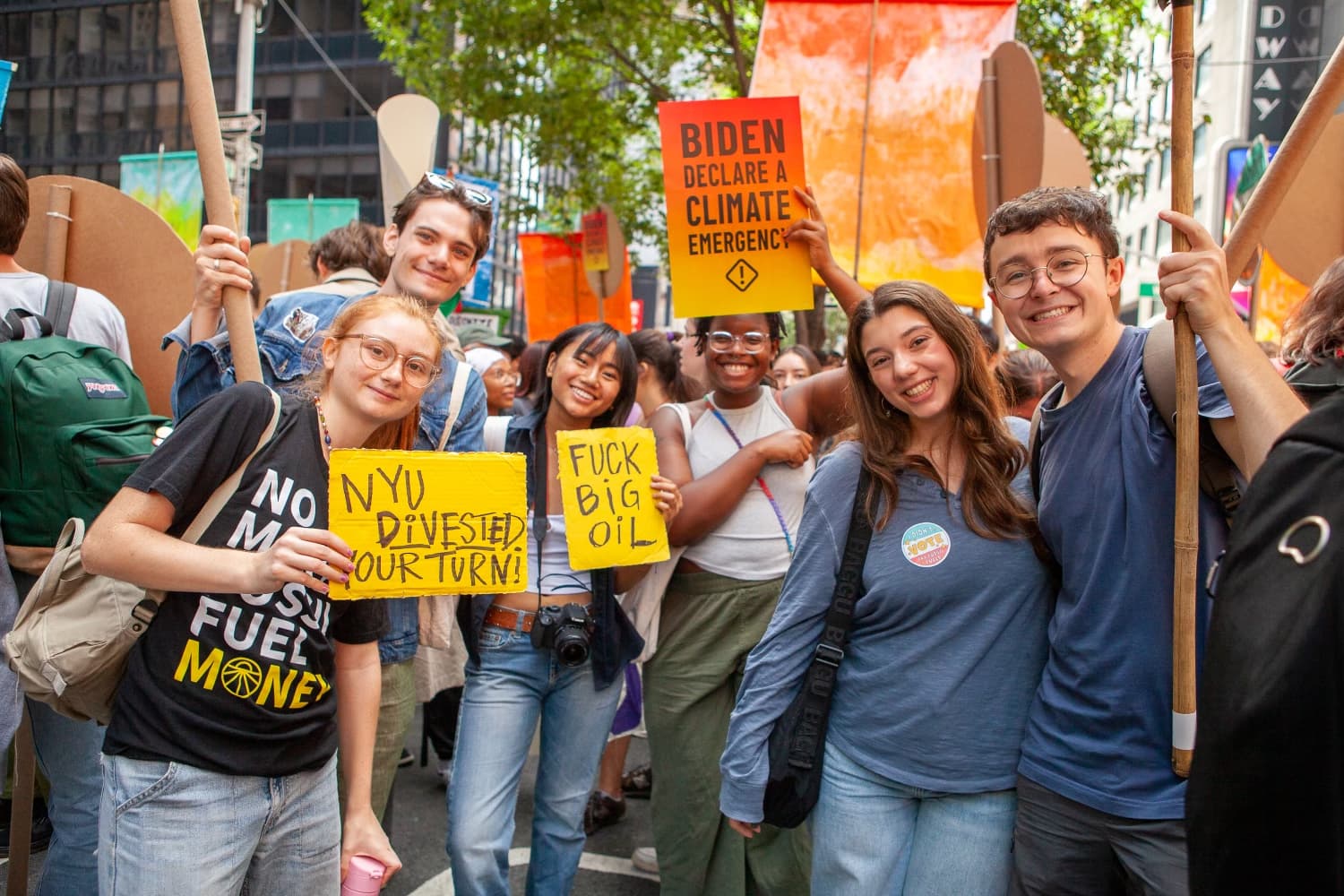Our approach
We're organizing the next generation of climate justice leaders.

Vision & mission
Vision
We strive for a world free from the influence of the fossil fuel industry and its enablers, where universities can become true climate leaders.
Mission
Campus Climate Network is building power in the US student climate movement. We are building a coalition of student-led climate justice groups fighting to cut ties with the fossil fuel industry and its enablers. We provide students with the training, resources, and connections they need to run winning campaigns on campus and become the next generation of climate justice leaders.
What we're up against
The climate crisis is here
Climate change is an existential threat to humanity and a driver of injustice at every level. Its impacts are already being felt around the world. Tackling climate change requires an immediate and just energy transition away from fossil fuels that centers frontline communities.
Fossil fuel obstruction
The fossil fuel industry's business model is unjust at its core. The industry systematically sows doubt to delay a just energy transition. Its continued reliance on corporate violence and extraction systematically harms marginalized communities.
Corporate-captured universities
A narrow set of decision makers tied to corporate donors dictate campus priorities. Private funding for research gives fossil fuel companies outsized influence. We fight for transparent, democratic governance and well-funded public research.
How we unite
Building a powerful coalition
We convene student-led climate justice groups across the country, providing training, resources, and community so every organizer can run winning campaigns and stay in the movement for the long haul.
Decentralized, grassroots change
Campus organizers know their institutions best. We support them with strategy, tools, and national alignment while honoring local leadership and decision making.
Connected to the broader movement
We partner with allied organizations, respond to moments of mass mobilization, and ensure campus campaigns reinforce global demands for a just transition.
How we win
Unify the campus climate movement
We share skills, work together, mentor each other, and coordinate our efforts to create a stronger and more united campus climate movement.
Run effective campaigns
We take nonviolent direct action to force decision makers to confront the violence of the fossil fuel industry and pick a side. Our tactics are accessible, highly visible, and inspiring.
Frame the conversation
We use our collective voice – on a local, national, and global scale – to set the conversation about the fossil fuel industry's influence on higher education.
Center those most impacted
We highlight the violence enacted on marginalized groups by the corporations that our universities wrongly continue to see as reputable partners. We center frontline struggles in our campaigns and stand in solidarity with frontline organizations.
Theory of change
If we build a large, coordinated coalition of skilled student climate organizers and campus community members running effective campaigns, we will hold the power to successfully influence decision-making at universities and publicly pressure them to cut ties with the fossil fuel industry.
We will win because when we unite, we pose a credible threat to universities' prestige, credibility, and influence, without which they can't survive.
Universities have always been on the forefront of social change. When universities cut ties with the fossil fuel industry, other social institutions will follow.
Along the way, we will equip a new generation of leaders to continue the fight for climate justice long after they have left campus.
Revoking the fossil fuel industry's social license to operate and developing new climate justice leaders will bring us closer to achieving a just energy transition to stop the climate crisis.
We subscribe to the Jemez Principles for Democratic Organizing.
